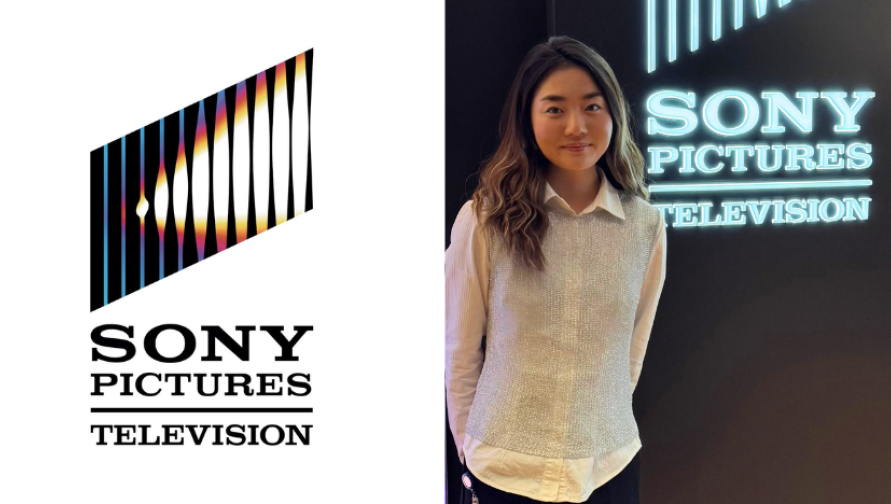
FMS major Katie Kim had the opportunity to work with Sony Entertainment Television for her internship recently. During her internship, she was responsible for assisting with competitive analyses, script coverage, pitch decks, and supporting the marketing team in creating campaigns that align with the lifecycle of the current television series. From these experiences, Katie was able to work towards her goals of strengthening her analytical and creative skills, deepening her knowledge of the entertainment industry, and building a professional network.
How did you get this internship?
Katie: I got this particular role by utilizing my academic background and gaining relevant on-campus experiences. I started my internship applications last spring, looking at a handful of companies and roles at a time! This helped tailor any experiences to my specific goals, but it also allows you to build a stronger resume, having keywords in direct relations to what a company or team may be looking for. More competitive corporations may only leave their applications open for a week or two due to the volume of applicants, so if you have a few companies in mind, you can always check their ‘careers’ pages once in a while so you don’t miss anything!
What about your FMS education has helped you get the internship? Or what parts of your FMS education do you utilize while at your internship?
K: My academic background in Film and Media Studies played an integral role in preparing me for this opportunity. Many of my major classes laid a strong foundation for my theoretical understanding of media industries and audience engagement. Notable courses from the FMS departments included 101C The Contemporary Era, 110 Film and Media Theory, and 85B Broadcast Media. These courses helped me to approach my projects with a more critical eye and a deeper understanding and appreciation for the complexities behind an entertainment project. For example, in my 85B Broadcast Media class, we learned about the various independent methods of media analyses. From television standardization, demographics, and cultural forms. One lesson that particularly stood out to me was Advertising/Consumerism and American Ideology.
Earlier broadcast ‘marketing’ has stemmed from the analogy idea that being a good consumer meant that you were a good citizen. It is interesting to connect this to how modern marketers are still consciously spreading these messages, aligning consumption habits with societal habits and values. Understanding the historical evolution of television formats, distribution strategies, and cultural trends overall enhanced my ability to contribute meaningfully to discussions about branding and marketing with my team!
Which professor or class has been influential?
K: One notable professor and class that has been influential beyond the classroom is Professor Peter Krapp’s Title Design course. At the time, I just enjoyed the class for its interesting studies on animations, typographies, and music, but it directly contributed to many core projects at Sony. A title design is capable of capturing the essence of an entire plan and it can easily mirror and establish a cohesive aesthetic, reinforcing a brand’s identity. Sometimes, being nit-picky is important and the title design course has allowed me to bring a creative touch in making a visually engaging presentation!
What do you hope to get out of this internship or what responsibilities do you have?
K: At the outset of the internship, I set three primary goals for myself:
1. Strengthen my analytical/creative marketing skills
2. Deepen my knowledge of the entertainment industry as a whole
3. Build a professional network within the industry (to the best of my ability)
My responsibilities included assisting with competitive analyses, script coverage, pitch decks, and supporting the marketing team in creating campaigns that align with the lifecycle of the current television series. Walking in with these goals in mind from the beginning kept me motivated throughout the whole duration and was a good reminder to take advantage of such a great opportunity!
What advice or recommendations would you give a fellow FMS major or minor?
K: I would highly recommend to my fellow FMS students to explore the industry broadly! Beyond production, there are countless opportunities in entertainment such as graphic design, public relations, distribution, programing, etc. You are able to use that passion you have for film, television, and media into various roles and internships are a great way to get hands-on experiences in the field.
